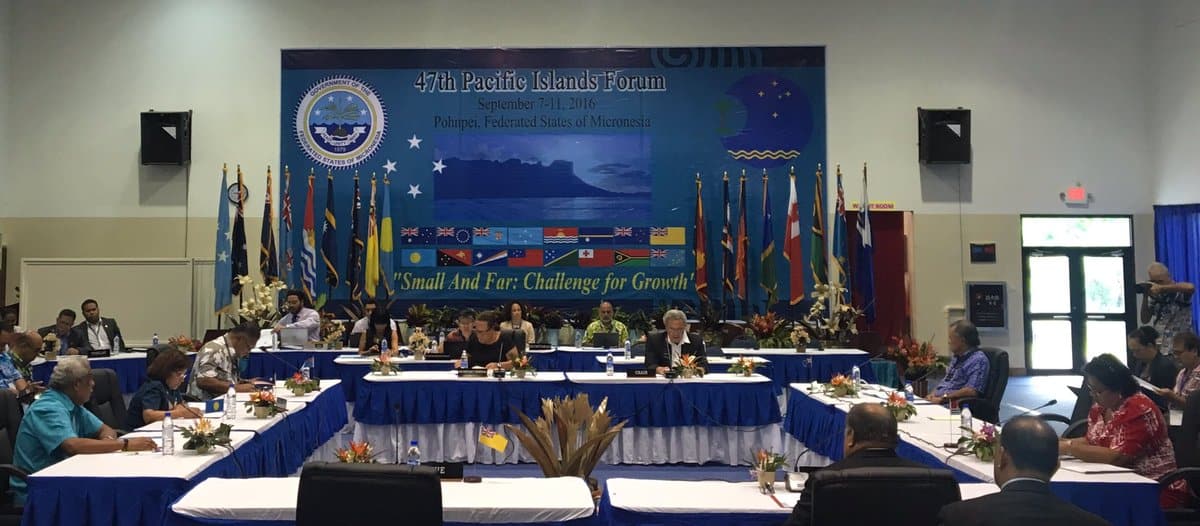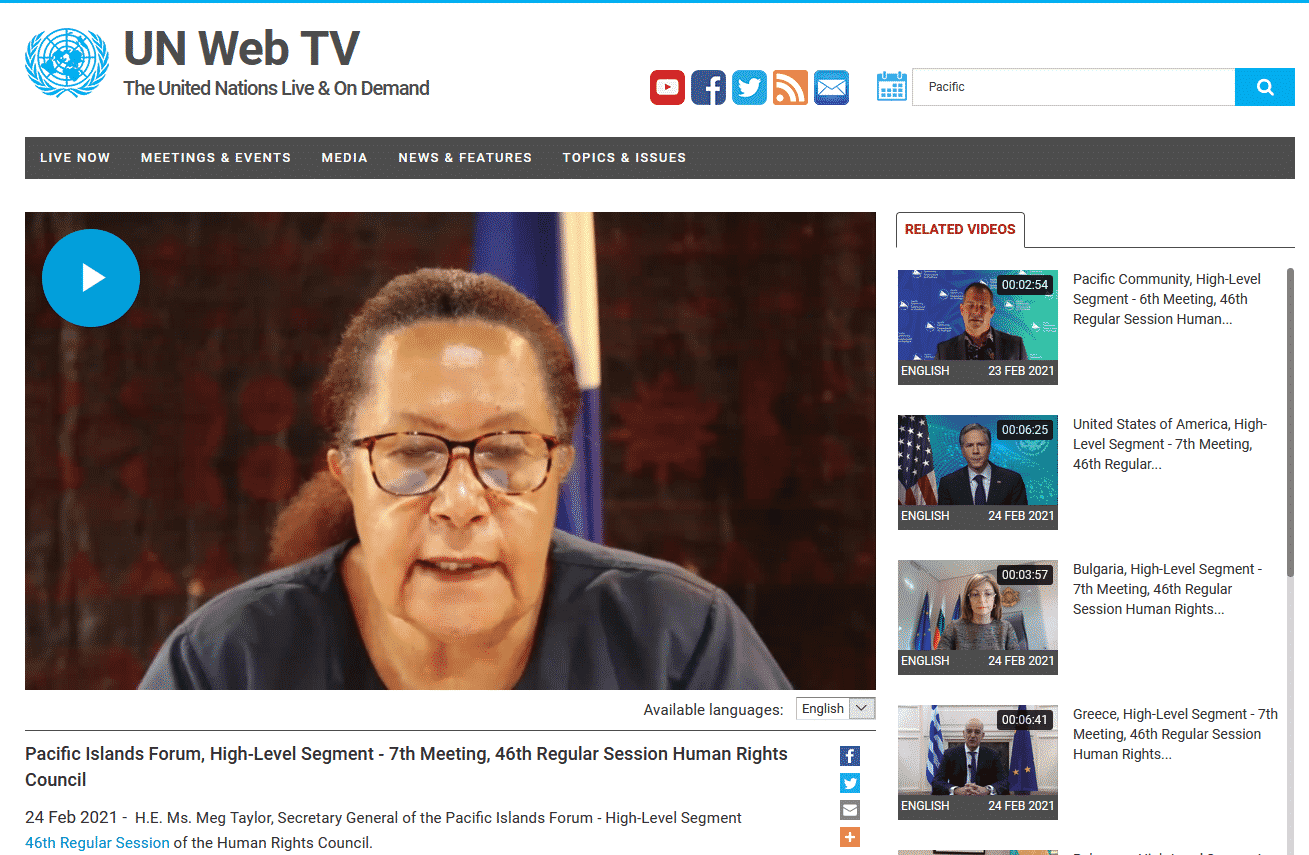
Jayapura, Jubi – Pacific leaders’ lack of expressed commitment to action the case of West Papua at their meeting in FSM may be due to geo politics says Pacific Islands Association of NGOs executive director, Emele Duituturaga.
“Generally, the result of the 47th Pacific Islands Forum Leaders meeting as articulated in their communiqué was a mixed one for civil society,” Duituturaga said to Jubi on Monday (12/9/2016).
But she said Pacific NGOs were happy that some of the issues we pushed for like the Pacific Framework for the Rights of Persons with Disability, Climate Change and disaster risk management, and coastal fisheries were endorsed by the leaders and reflected in the communiqué.
“For West Papua – while the human rights violations were mentioned, the push by CSOs to have West Papua raised at the United Nations is not reflected,” she said.
On West Papua, the 47th PIF Leaders meeting communiqué stated that “… Leaders recognised the political sensitivities of the issue of West Papua (Papua) and agreed the issue of alleged human rights violations in West Papua (Papua) should remain on their agenda. Leaders also agreed on the importance of an open and constructive dialogue with Indonesia on the issue…”
“An achievement is the agreement to keep the issue of human rights violations should remain on the leaders agenda. We know that a couple of members had hoped the issue of West Papua would be removed altogether.” she added.
She said Pacific NGOs understand from talking individually to leaders and officials that there were robust discussions by the leaders that was quite encouraging. They also know that the draft text reflected their intention to take West Papua to the UN but when the final communiqué was released, it had been watered down,.
“It is obvious that geo politics were at play which brings to question whether infact our leaders can be bold and courageous in the presence of neighbouring powers like Australia and New Zealand,” she said.
She said that the 16 CSO representatives at the TROIKA leaders breakfast dialogue felt successful and promising discussions were held on the issue. All those present expressed sentiments that the issue of West Papua – both in terms of human rights violations and self-determination were important. What those leaders at the breakfast articulated was that there are provisions in the UN that needed to be followed and utilised to bring the issue to the UN.
“We are concerned that this promising dynamic in the discussion civil society organisation representatives had with leaders at the breakfast was not present at all in the communiqué. Perhaps there is limited value to just talking to a handful and whether that makes an impact to the final discussions that leaders have at the retreat,” she added.
Regarding Duituturaga, the Samoan Prime Minister, who is the next PIF Chair had stated at the breakfast meeting that the CSO dialogue needed to take place with all the 16 leaders and not just TROIKA and he will see to that for next year’s PIF programme. This result (Communiqué) seems to confirm that this is really what’s needed to be done in order for leaders to commit to taking the issue to the UN.
However, Duituturaga said the Pacific Islands Coalition on West Papua (PICWP), which includes Solomon Islands, Vanuatu, Republic of Marshall Islands, Nauru and Tuvalu and PIANGO, is an avenue which CSOs will tap into to continue to push the West Papua agenda at the UN.
“What is encouraging and positive however, is how PICWP member countries have visibly shown their commitment to take up the issue.”
Duituturaga said PIANGO will now work individually with those countries for UN intervention on human rights violations and to push for self-determination for West Papua at the UN General Assembly, the UN Human Rights Council and raise these matters with the UN Secretary General. (*)















